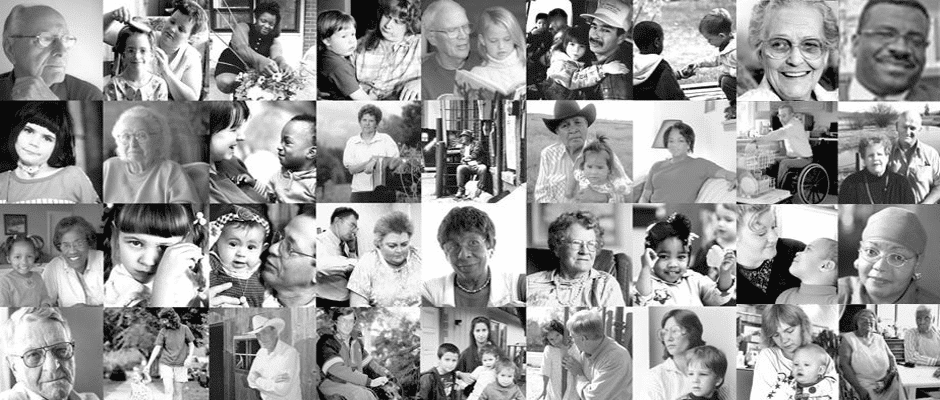Lawyer Spotlight: Meet Legal Aid Attorney, Howard Belodoff


He insists that to be a successful lawyer, you don’t have to be the smartest person in the room. You just need strategy, organization, judgment, and preparation.
What kind of law have you practiced?
I began working at legal aid when I got out of law school. I had a Reginald Heber Smith Fellowship from Howard University. Reginald Heber Smith is credited with starting the first legal aid society in New York City for immigrants. I’ve always done what is called impact advocacy or impact litigation. My clients are the people who are always in the shadows, who don’t have the resources to challenge the government and protect their individual rights. Most of my cases concern the civil rights of low income persons, prison and jail inmates, adults and children who suffer from mental illness, persons who are homeless, disabled and people with HIV/AIDS, Native Americans, and farm workers.
Do your clients choose you or do you choose your clients? How does Legal Aid work?
They pretty much choose me but I make the final decision. There’s no right to appointed counsel in a civil matter. The clients typically need to challenge the implementation of a policy that violates a constitutional right or federal law. These cases are not the types that the private bar normally handles. I am not seeking money damages. Private attorneys do not routinely file a lawsuit on behalf of a homeless person for housing discrimination or for an inmate confined in over overcrowded and unsafe conditions or deprived of adequate medical care, or on behalf of mentally ill children who are not receiving the necessary treatment and as a result experience a crisis that requires hospitalization or institutionalization.
What causes you to initiate a case?
It usually depends on the gravity of the issues and if it’s an issue that would not otherwise be challenged. I have a case that involves mentally ill children in Idaho against the Governor and Department officials. The Complaint in Jeff D was initially filed in August of 1980. I am currently enforcing the fifth settlement agreement. The case went before the United States Supreme Court on the waiver of attorney fees in civil rights cases. It’s been appealed to the Ninth Circuit Court of Appeals five times. It’s been a constant struggle to get the Defendants to comply with the settlement agreements and court orders. The case was dismissed in 2007 but was reversed on appeal. The new settlement agreement and implementation plan when fully implemented will provide community based services to the estimated 21,000 mentally ill children in Idaho so they don’t have to suffer a crisis and be hospitalized or institutionalized or arrested and committed to the juvenile justice system to receive necessary treatment. These children will be able to live with their families, go to school and have a chance of becoming an adult without the threat of being incarcerated in prison because they cannot function at homes and in school.
What are you most proud of on your resume?
That is hard to say after 38 years. The cases I did on the Fort Hall Indian Reservation for the Fort Hall Land Alliance and individual tribal members. Over forty years, the BIA (Bureau of Indian Affairs) had violated not only their trust responsibilities, but federal law and federal regulations when it came to leasing and managing the trust lands on the reservation. The would lease the land for less than half of the fair market value and grant rights of ways for electrical transmission lines and gas pipelines for less than 10% of their actual value. The farmers and utility companies were making millions of dollars using the land but the actual owners were living in decrepit trailers barely able to support their families. The BIA was required to pay millions of dollars in actual damages for violating the privacy rights of the landowners.
The other case was Community House Inc. vs. Boise. The City retaliated by taking over the homeless shelter CHI help construct and managed for ten years so it could turnover the operation to another shelter provider.The City passed a men-only ordinance and evicted all the women, children and families. In 2012 a jury awarded CHI $1 million in damages for retaliation and discrimination under the Fair Housing Act.
What’s the most valuable thing you do for your clients?
I really think it’s the intangible things. It’s the dignity they feel as individuals when they stand up for what is right.
What do you do to unwind?
I used to run but now just walk fast and lift weights because of back issues. I bike and walk with my wife and spend time with my kids and I am involved in the FC Nova soccer club.
What is something that your clients would never guess about you?
I’m just a softie inside. I’ve been called a lot of names: ruthless — I’m a tough adversary. They mistake preparation and skill as toughness. It’s not that. I just believe in my clients.
If you hadn’t become a lawyer, what would you have been?
I don’t think I would work for anybody. Let’s put it that way. The practice of law is not only preparation, but it’s the ability to see certain things and then figure out how you get to where you want to be. That’s a skill that I have developed with experience. How do I get from Point A to Point Z. I have confidence in my own legal analysis and judgment. I would not bring a case if I did not think we were not going to succeed. Those skills are transferable to many different occupations.